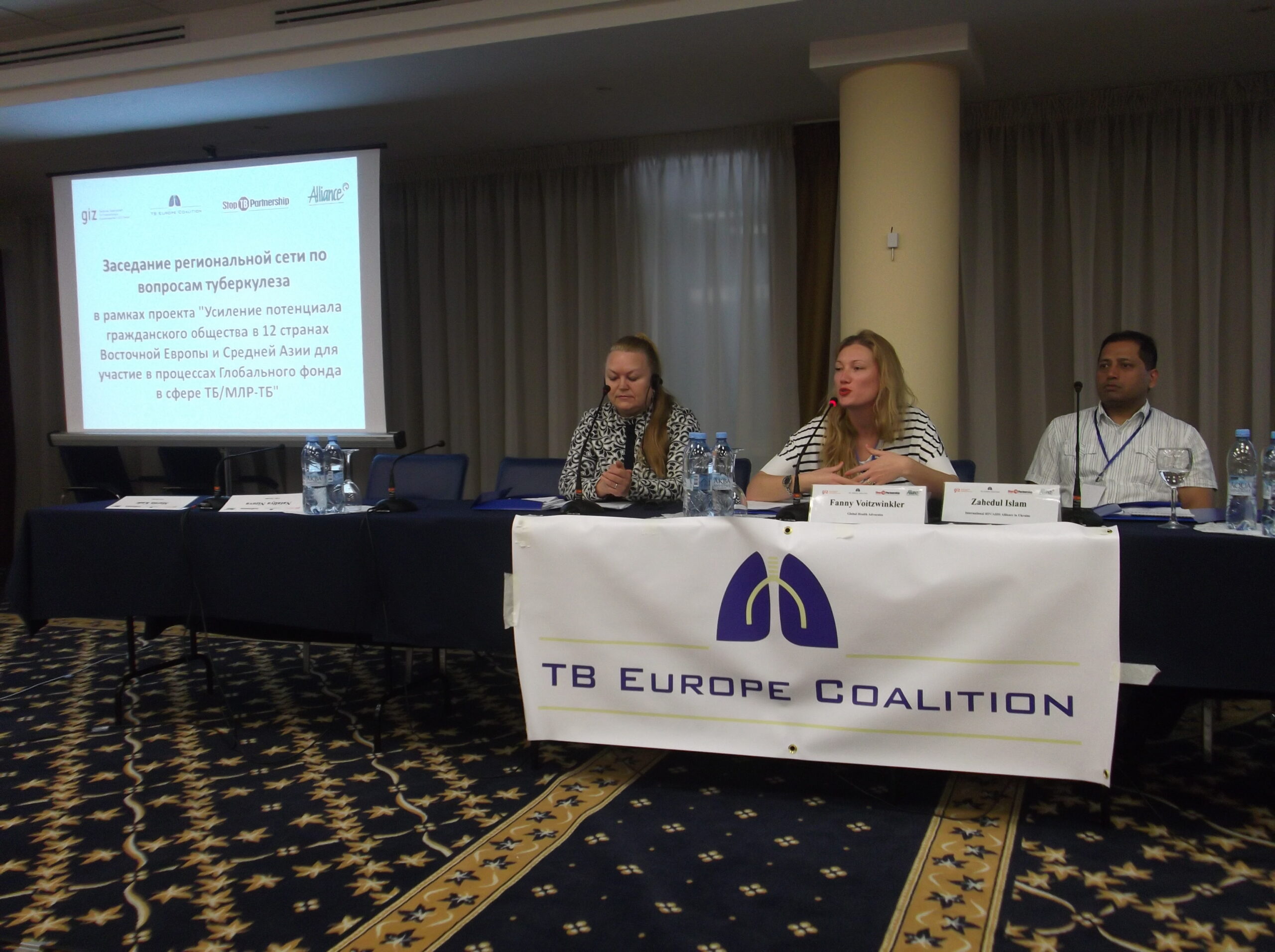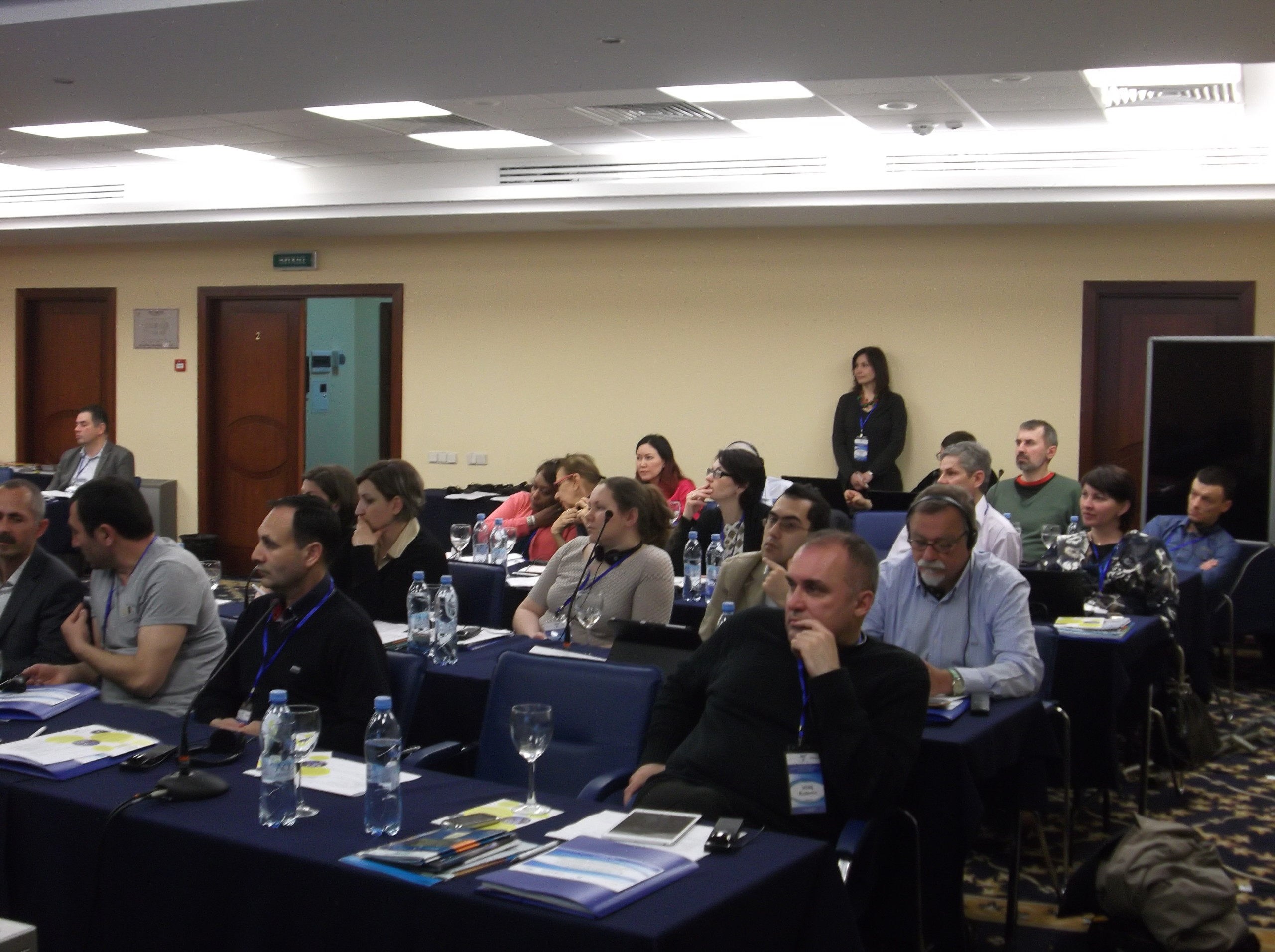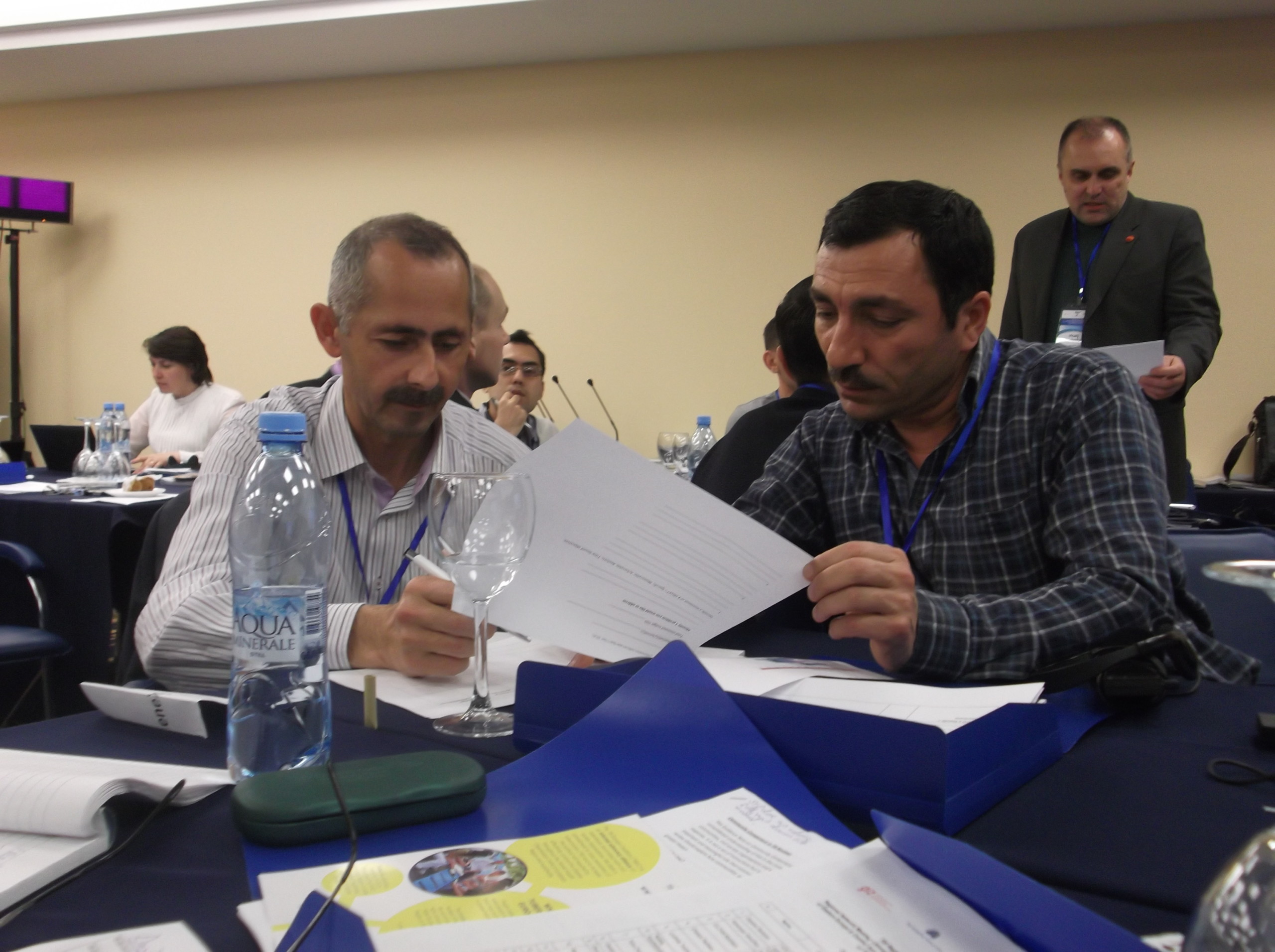 At a time of great challenges for Ukraine, twenty-three tuberculosis (TB) activists, representing twelve countries from the Eastern European and Central Asian region, gathered in Kyiv to attend a training aimed at strengthening their capacity to participate in national and regional TB responses. The four-day TB Regional Network meeting was organised by the AIDS Alliance Ukraine and the TB Europe Coalition with the support of the Deutsche Gesellschaft für Internationale Zusammenarbeit (GIZ) and the STOP TB Partnership.
At a time of great challenges for Ukraine, twenty-three tuberculosis (TB) activists, representing twelve countries from the Eastern European and Central Asian region, gathered in Kyiv to attend a training aimed at strengthening their capacity to participate in national and regional TB responses. The four-day TB Regional Network meeting was organised by the AIDS Alliance Ukraine and the TB Europe Coalition with the support of the Deutsche Gesellschaft für Internationale Zusammenarbeit (GIZ) and the STOP TB Partnership.
The training was especially timely considering the adoption of a New Funding Model (NFM) by the Global Fund to fight AIDS, TB and Malaria (GFATM), which changed the way the biggest donor in the region invests in HIV and TB programmes. In this context, the TB Regional Network Meeting informed the participants on the functioning of the new model and trained them to meaningfully and effectively participate in GFATM’s processes in their respective countries. The meeting also provided an opportunity for civil society organisations (CSOs) from Eastern Europe and Central Asia to connect and share best practices in this regard, thus reinforcing regional cooperation.
 The first day of the training focused on the importance of Community System Strengthening (CSS), human rights and gender to accelerate progress in the fight against TB. Through the presentations of experts from the STOP TB Partnership and the Global Coalition of TB Activists, participants had a chance to increase their understanding of these key components and learn how to ensure that they are effectively included in the various GFATM funding applications. Strengthening community system and adopting a human rights and gender-based approach is vital for making progress towards the goal of universal access to health care and realising the right of everyone to obtain the highest attainable standards of health, regardless of who they are or where they live.
The first day of the training focused on the importance of Community System Strengthening (CSS), human rights and gender to accelerate progress in the fight against TB. Through the presentations of experts from the STOP TB Partnership and the Global Coalition of TB Activists, participants had a chance to increase their understanding of these key components and learn how to ensure that they are effectively included in the various GFATM funding applications. Strengthening community system and adopting a human rights and gender-based approach is vital for making progress towards the goal of universal access to health care and realising the right of everyone to obtain the highest attainable standards of health, regardless of who they are or where they live.
The second day of the training presented participants with an opportunity to gain a greater understanding of GFATM processes. Participants were given a clear and detailed introduction to the NFM and their role in the development of country applications under the NFM. Specifically, and what was particularly helpful for participants, was the emphasis on how and when they, as civil society, should get involved in country process for GFATM applications.
The third day of the TB Europe Regional meeting was led by the TB Europe Coalition (TBEC) Secretariat and dedicated to strengthening the advocacy capacity of TB activists in the Eastern European and Central Asia (EECA) region. By presenting TBEC’s work and how the coalition has developed since its creation, facilitators provided participants with tips on how to carry out effective advocacy activities and build partnerships in order to make their voices heard at both national and regional level. This is especially important at a time when, in spite of high rates of TB-HIV co-infection and drug-resistant TB, international donor financing is increasingly uncertain.
 During the final day of the meeting participants put into practice the skills and knowledge acquired during the previous days of the training. Participants were asked, working in their country groups, to create country action plans. Using the skills gained, participants had to identify a maximum of three SMART objectives and select activities and indicators that would then be used to achieve and measures these objectives.
During the final day of the meeting participants put into practice the skills and knowledge acquired during the previous days of the training. Participants were asked, working in their country groups, to create country action plans. Using the skills gained, participants had to identify a maximum of three SMART objectives and select activities and indicators that would then be used to achieve and measures these objectives.
The four-day training ended with presentations by each country group of their plans. It was clear from the standard of these presentations that participants gained a clear understanding of the most effective ways to initiate change in the fight against TB and how to effectively involve civil society organisations in country processes in this regard.



